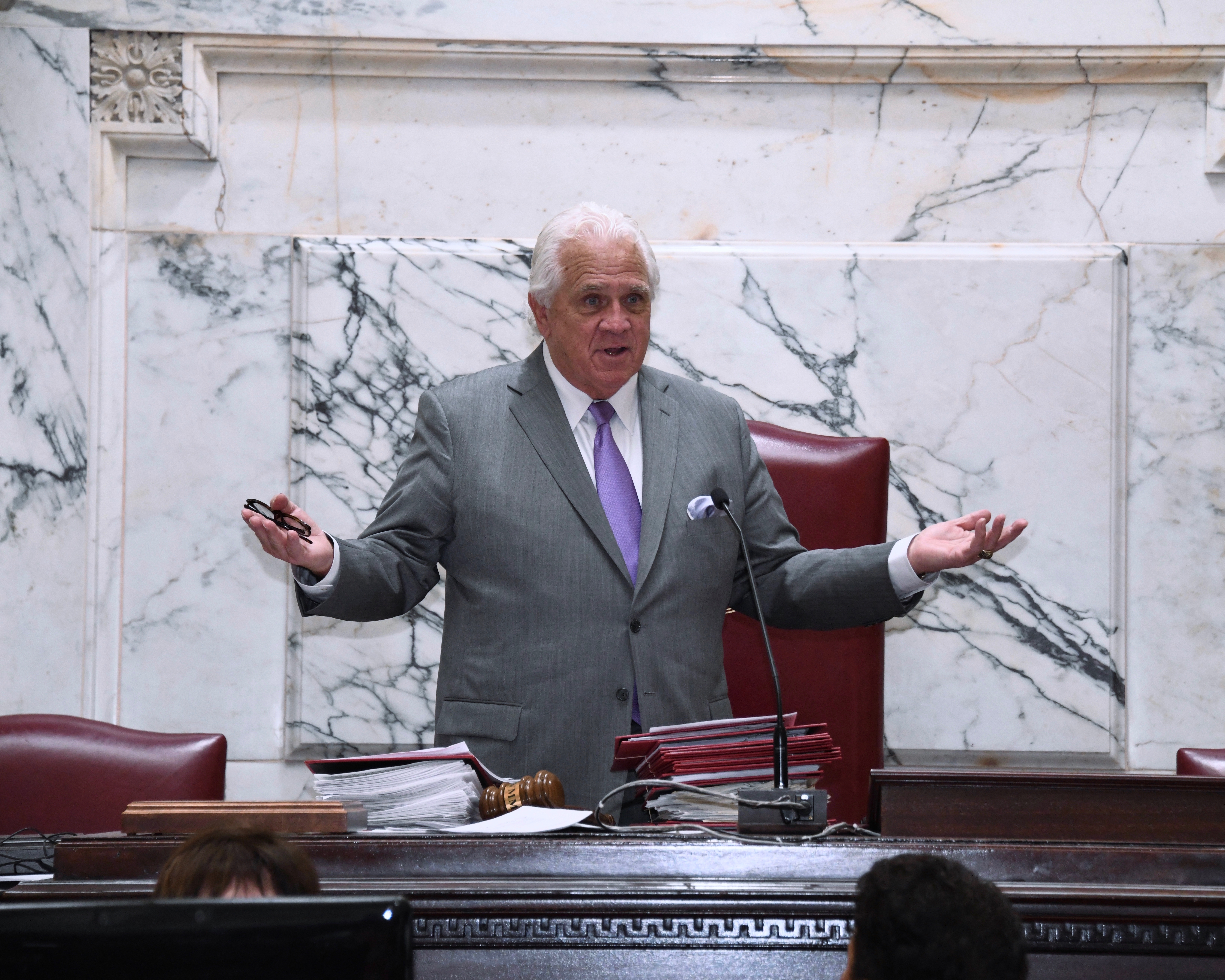Andy Rosen
Andy@MarylandReporter.com
There was little agreement between business and labor groups about unemployment insurance on Thursday as Gov. Martin O’Malley’s staff laid out his legislative plan for revamping it in 2010.
At a meeting of the Joint Committee on Unemployment Insurance Oversight, business at the table roundly rejected O’Malley’s proposed reforms, calling them too costly in the long run and complaining that the plans don’t do enough to help small businesses who are struggling with rising unemployment taxes.
Joe Bryce, O’Malley’s legislative director, argued that the plans would make the state eligible for nearly $127 million in federal stimulus dollars that depend on the passage of reform. He pledged $83 million of that to help businesses that have been hit with rising costs as unemployment has grown, depleting the state’s unemployment fund and triggering tax increases.
Next year, businesses will see the minimum unemployment tax rate more than triple, from $51 to $187 per employee. The maximum rate will jump from $765 to $1,148.
“Our proposal will be able to provide that relief if the federal stimulus money does come in,” Bryce said.
The Maryland Chamber of Commerce argues that O’Malley’s proposed changes would cost the state’s unemployment system close to $20 million annually.
Committing to long-term spending for a one-time infusion of cash is not wise, said Patricia Bishop, who represents the National Federation of Independent Business on the panel.
“It just doesn’t seem like good business sense,” Bishop said.
O’Malley’s proposals include a move to use a worker’s most recent wage period to calculate unemployment benefits. Currently, benefits are generally calculated by looking at the first four of the past five quarters.
Labor representatives, who sit on the committee with business representatives, lawmakers and legislative appointees, generally agreed with the O’Malley’s proposals. Ernie Grecco of the AFL-CIO said he was not pleased with some of the counter-proposals by business aimed at reducing claims.He particularly took issue with a Chamber-backed measure that would delay benefit eligibility by a week.
“I thought it was an insult for them to even bring that to the table,” Grecco said.
Advocacy groups argue that current rules make workers lose benefits if they had been calculated on their most recent three to six months of earnings. Bryce said he believed the pay period would ultimately be updated by the federal government.
Sen. Thomas “Mac” Middleton, D-Charles, Senate chairman of the committee, said he agreed.
“If we don’t do it legislatively, you’re likely to get it through congressional or presidential action,” he said.
Nick Sohr at The Daily Record and Scott Dance at the Baltimore Business Journal have more details on the proposed changes to unemployment insurance. Dance also writes that the General Assembly may act quickly on the changes. And here’s The Baltimore Sun’s take.




Recent Comments